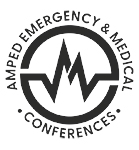Donating Medical Equipment
Since 1995, AMPED has donated a significant amount of medical equipment to community healthcare centres, clinics and hospitals, in PNG, the Maldives and Indonesia. They include ECG monitors, diagnostic equipment, AEDs, customised wheelchairs, portable multichannel biochemistry analysers, 85 CPR mannequins and many more. In addition, many of our delegates commit some of their time to teaching and assisting in community run clinics.
Benevolent Projects
Over many years, AMPED have also provided funding to assist with multiple benevolent undertakings. Some have required extensive planning, coordinating, and funding. Below are a few that are notable.
2004 Tsunami
In 2004, the independent republic of Maldives, was hit by the 2004 Indian Ocean tsunami. It was a nationwide disaster that caused widespread damage to physical infrastructure. It was a mammoth task to reach the 200 inhabited islands. After consulting with our Maldivian liaison, who is a popular figure in the Maldives being the national surfing champion, it was decided to purchase essential items such as medications, clothing and food and deliver them to the more remote islands by chartering boats. The boats also retrieved injured people to the capital Malé.
Operation in India
During a visit to Malé in 2009 we were introduced to a young girl who needed a bone marrow transplant. Her parents were told that there was very little prospect that the government would fund the operation which would take place in India. Her parents had raised approximately $10,000, however she needed another $20,000 to cover costs. AMPED was able to raise the remaining amount and the operation took place in India as planned.
National CPR Initiative
Two weeks prior to the commencement of a Maldives conference in 2011, AMPED was once again contact by our Maldivian liaison. He told us that there had been a tragic accident where five year 9 students and their teacher drowned in flat water during a school camp at a village that AMPED frequently visits. From all reports, the little CPR that was performed was ineffective and if some type of buoyancy device was on hand, lives may have been saved.
AMPED’s initial response was to purchase 2 rescue boards for the camp and instruct the staff how to utilise them in a rescue scenario. However, the main proposal was to initiate a National Train the Trainer CPR course for teachers who would in turn teach CPR to school children. On our arrival in the Maldives, the Deputy Director of Education met with us and approved the initiative. We explained that this would be an ongoing project until we were all satisfied that an appropriate number of teachers were trained. With the assistance of Singapore Airlines, AMPED delivered around 20 CPR mannequins on our first visit. Training took place after school in a large school hall in Malé. The enthusiasm displayed by the teachers was wonderful. Over a 2-year period, AMPED supplied 85 assorted CPR mannequins.
Operation in Australia
In 2017, we met a 26-year-old woman who was suffering profoundly from Rheumatoid Arthritis. She was unable to bend her knees, confined to a wheelchair and in a great amount of pain. Professor Bill Walters, an orthopaedic surgeon who specialises in knee replacements, examined her, and was quite certain that she needed bilateral knee replacements.
After we returned, Bill met with us and explained that if we could bring her to Sydney from the Maldives and cover the costs of her stay, he and his father, also an orthopaedic surgeon, could perform the operation free of charge. Bill also arranged for the cost of her hospital stay to be waived by the Mater Hospital, and had the Prostheses donated. AMPED organised and paid for both her and her husband to Australia and provided accommodation and living expenses for 7 weeks stay until she returned home to Malé.
The procedure was a total success, and the young woman returned home. She regained her mobility, returned to work and was pain free.
The concept of having a group of doctors with a wide range of specialties in one place at the same time outside a hospital setting was unique and very beneficial.
